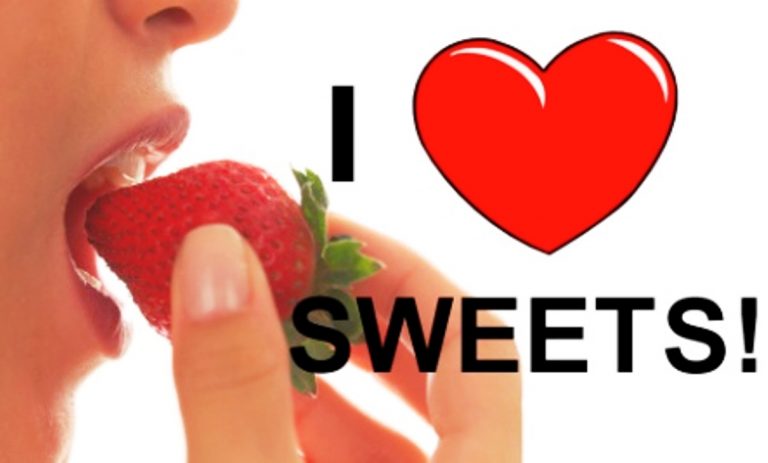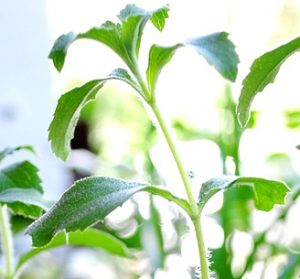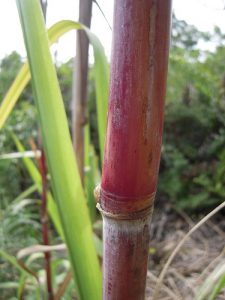healthy sugar is best for us and there are so many sugars that are very damaging to our health and body. So which ones are they?

Sugar is a big part of our foods!
There are lots of different sugars.
Can you pick out which ones are good?
I love sweet things and became addicted to white sugar as a child. This caused many health problems. This is one of the reasons I have focused on real foods: foods that are whole, live, and are balancing to the body and sugars do not exist in this category.
In past articles, you learned about the 7 Tips to Stop White Sugar Cravings and Reasons to Avoid Artificial Sweeteners. Now let’s learn about the more natural ones.
Not all sugars are equal. Some are very good for you in small quantities. Many are less healthy. Learn about the sugars on the following list and would you consider them real foods? Which do you use and why?
Which Is a Healthy Sugar and Which Is Not
19 Common Sugars and Sweeteners
1. White sugar (aka sucrose) is a pure chemical extract of sugar cane or sugar beet with no vitamins or minerals; these are stripped during the extraction process. Refined white sugar is a simple carbohydrate with lots of calories, no dietary fiber, and is an isolate. Isolates never occur in whole foods. Vegetarians may note that it may be processed with bone char. Causes a “sugar high.”
2. Brown sugar is white sugar coated in molasses which will add a few trace minerals but is no healthier than white sugar and creates the same “sugar high.”
3. Fructose is not from fruit; it is a commercial, refined sugar and it has no more nutrients than sucrose. It raises cholesterol, makes blood cells more prone to clotting, and it may also accelerate the aging process.
4. Sugar alcohols (Erythritol, Isomalt, Lactitol, Maltitol, Mannitol, Sorbitol, Xylitol, and Hydrogenated starch hydrolysates) are neither sugars nor alcohols. They do have calories; Xylitol has more than half the calories of white sugar. The only problems I could find with them are that when they are eaten in excessive amounts they can cause gastrointestinal side effects (bloating and diarrhea), weight gain, and increased blood sugars. They are not whole foods so caution must be used; the recommendation is to not use them regularly.
5. Fruit juice concentrate is highly refined and has been stripped of flavor and nutritional value. It is rapidly assimilated in the bloodstream so not highly recommended.
6. Demerara sugar (also known as turbinado sugar) is made by extracting the juice from sugar cane and then heating it until it is turned into crystals. It does not preserve much of its original molasses content but does have lots of potassium and some minerals and vitamins.
7. Evaporated sugar cane juice goes through less processing than refined sugar and has more nutrients found in the cane. It contains tiny amounts of vitamins and minerals.
8. Sugar cane juice is made from the same sugarcane stalks that are grown to make white sugar. Hand-powered presses or machine presses crush the sugarcane stalks and release the raw sugarcane juice. It is healthier than table sugar as it contains tiny amounts of vitamins and minerals and is raw if not processed at high temperatures.
9. Sucanat is made from sugar cane, usually organically grown, and minimally processed to obtain juice to make syrup (the molasses is not removed). The syrup is dehydrated and milled into a powder. It has potassium, vitamin A, calcium, iron, magnesium, and small amounts of other vitamins and minerals.
10. Coconut sugar is made from the sap of coconut flowers by boiling it down to dry sugar blocks a soft paste or a granulated form. It contains a higher amount of nutrients compared to brown sugar as it has some amounts of nitrogen, phosphorus, potassium, chlorine, magnesium, sulfur, and micro-nutrients. It has a very low glycemic raising index and my diabetic friend Tricia Holder says it is the only sugar that works for her. This is a healthy sugar. Still use in moderation.
11. Palm sugar is extracted from the sap of date palm trees and palmyra palms, which are said to be the best. It can also be extracted from sago and coconut palms. Commonly this sugar is used in Southeast Asia, where it is called jaggery or gur. It is high in amino acids, potassium, magnesium, zinc, and iron and has some vitamins B1, B2, B3, and B6. It also has an absorption rate slower than that of white sugar.
12. Agave nectar is the juice extracted from agave (plant tequila is made from). It’s not raw; it is produced much like maple syrup is; boiled at a high temperature till it’s a syrup. It is 42 percent sweeter than white sugar but has the same caloric value and a low glycemic index. Most agave syrup has a high fructose content ranging from 70 to 97 percent, depending on the brand. This is higher than most commercial sweeteners; even higher than high fructose corn syrup which averages 55 percent. A report says that it’s as bad for our bodies as high fructose corn syrup. There is much controversy about this sweetener and here is one place to read about it: Weston A. Price Foundation.
13. Date sugar is not sugar as it is made from ground, dehydrated dates containing all the vitamins, minerals, and fiber found in the fruit. It is rich in nutrients and metabolizes more slowly than other sugars. It is a bit of a healthy sugar
14. Maple syrup is made from the sap of maple trees. Less refined than white sugar, but at roughly 65 percent sucrose, is a sugar equivalent. It has a tiny amount of minerals and a very tiny amount of vitamins.
15. Barley malt syrup is made from barley that is sprouted using only the grain’s enzymes, kiln roasted, and slowly cooked until a thick, dark brown syrup is formed. The sugars in barley malt syrup are complex, thus they are slowly broken down in the body. It has trace amounts of vitamins, minerals, and protein. Barley malt syrup, like rice syrup, will not create a sugar-high like the simple sugars do as they release slowly. This makes it more of a healthy sugar.
16. Brown Rice Syrup is made from cooked brown rice, which is fermented by adding enzymes to turn the starches in the rice into sugars. Brown rice syrup is absorbed easily into our system, leaving less for fat accumulation in contrast with regular sugar. It is a complex healthy sugar thus takes longer to digest and does not create the sugar high that the simple sugars do.
17. Molasses is a by-product of sugar cane or beet sugar refining. High in B vitamins, vitamin E, iron, calcium, magnesium, potassium, chromium, manganese, and zinc. The blackstrap variety is less refined and higher in nutrients. Buy unsulphured molasses, as sulphur can be toxic in high doses.
18. Honey has similarities to table sugar. Pure raw honey (not heated above 100 degrees) contains small amounts of vitamins, minerals, enzymes, flavonoids, and antioxidants. Some research suggests that honey helps in the treatment of gastrointestinal disorders. Honey is as rapidly assimilated in the bloodstream as refined sugar, so is not highly recommended.
19. Stevia is a natural sweetener alternative that helps to regulate blood sugar and lower blood pressure. Stevia is a complex sweet extract from the plant Stevia Rebaudiana, grown originally in South America. It is a herb native to the Paraguayan Indians who used it before the colonization by the Spaniards in the 16th century. The Brazilian Journal of Medicine showed that Stevia Rebaudiana actually “increased glucose tolerance.” This is for sure a healthy sugar even though it isn’t a sugar.

Because stevia is very sweet, you only need to use a small amount and the best thing is that it virtually has no calories. Just think about it: a plant sweetening your food with virtually no calories, now how good is that?!!
Please Note:
- Consuming too much sugar (simple carbohydrates) can suppress the immune system from doing its job. It reduces the ability of white blood cells to kill germs and begins immediately after ingestion it has this effect.
- The problem with consuming any simple carbohydrate is that it creates an insulin response that can overwork the pancreas. Over time, the body’s ability to handle all sugars, simple and complex, begins to weaken.
- Since all sugars will cause an elevation in blood sugar, diabetics and people with dietary issues should consult their doctor about the best sweeteners that will be healthy for them.
- Most sugars are strongly acid-forming in the body. They all also have calories.
My Healthy Sugar Choices
Stevia, coconut sugar, brown rice syrup, barley malt, honey, and little molasses are the ones in my kitchen. Coconut sugar seems to be one of the healthiest of the sugars.
I never use the first four (white sugar, brown sugar, fructose, sugar alcohol) in my cooking. Rarely use any of the others and if they are they are used sparingly.
I bought a liter of maple syrup seven years ago; there is still half a cup left. The only reason there is so little left is because a cup of it was spilled two years ago in the fridge — what a mess!
A few years ago, I bought a package of sucanat and there is still a quarter of a cup left. At Christmas, when I make my Fancy Fruit & Macadamia Nut Cookies (dairy- & wheat-free), and use four tablespoons of sucanat for a big recipe. When making desserts, it’s mostly stevia that sweetens them up for things like rice pudding.
As stevia is usually in my recipes, there is much less of the other “sugars.” To get the right texture and flavor a little of one of the healthier sugars is helpful and they add some nutrition and of course fun.
Join me on a 2 – 5 – 30 Course
Improve Your Eating Habits Effortlessly,
Simplify Your Meal Planning,
Lose Weight and Overcome Health Challenges
Healthy Recipes:
Sugar-Free Apple Sauce Contains absolutely NO added sugars
Berry Crumble Sweetened with minimal healthy sugars and stevia.
Learn about Best Stevia Without the Bitterness That is Tasty and Where to Get It
Which ones do you use and why? Post your comments below!
Copyright © Diana Herrington www.RealFoodforLife.com]




I only use organic whole food stevia that has been balanced with chrysanthemum flower. The other ones in the health food store are full of additives like alcohol and have no health benefits. As a Type 1 diabetic it’s really helped lower my insulin needs.
Hi Randy and Diana,
I use Stevia in the liquid form also. I agree with Tricia being a diabetic also it really helps with the blood sugar levels and you can sweeten so many things with it. That’s actually something I wanted to get from you Randy the night I was there for rhe Food Fair. Do you have any dark Stevia yet? I would absolutely love to get some from you. Pleas, Please, Please and Thank-You.
Jean
Brilliant! The main point also is that in the other sugars is that the chromium is not refined out. Honey contains over 75 types of sugars some of which are extremely beneficial to health. Sucrose is not sugar despite all the marketing in the world. Has done so much damage and is the cause of lots of diabetes occurring.
I use Sunrider’s Suncare…or Honey. Only if I have to, will I use Brown Sugar or white.
I too am a consumer of Stevia; it is my favorite for the reasons I have said above.
On occassion I will use a very ittle of any of these: Maple syrup, Rice syrup, Molasses, Coconut sugar, Palm sugar, Agave nectar, Date sugar. I do mean very little….I bought a litre of maple syrup 5 years ago ad still have half of it and that is only because I spilled a cup of it last month….in the fridge; wat a mess! I bought a pacakage of sucanat 3 years ago and still have half a cup left. At Christmas, I make my Fancy Fruit & Macadamia Nut Cookies (Dairy & Wheat Free); I use 4 tablespoons of sucanat for a big recipe.
Mostly when I am making desserts I use stevia to make things like rice pudding.
As far as possible, I use natural food sugars, Stevia is not that readily available as yet in India; prefer to use jaggery instead of sugar wherever possible, jaggery is made from fruit, basically the juice is cooked till it solidifies, for more, http://en.wikipedia.org/wiki/Jaggery
Jaggery does sometimes add a brownish tint to milk dishes, so sometimes it is so not so usable, but for most part, it is a healthier alternative. Also, jaggery is known to be a very rich source of iron.
Kirti, I love Jaggery. It is listed above as Palm sugar …it is tasty indeed and yes it does contain lots of nutrients. Still it is a sugar that will spike your blood sugar. I would like to get you some stevia to try as I am sure you would like it.
I also, only use a whole food stevia. If you want more extensive information on Stevia email me and I will send it to you.
I would Love some more extensive information on stevia. Thank you 😃
“Obesity is actually the second-largest carcinogen in the United States…if we don't stem these obesity rates, we're actually going to have a tsunami of chronic disease, to include cancer, diabetes, heart disease, even orthopedic injury.” – Dr. Otis Brawley, chief medical officer for the American Cancer Society
What about xylitol – This sugar seems to be an up and coming sugar subsitute.
Hi D. Lamprecht,
In the article above read under the topic:
Sugar alcohols (Erythritol, Isomalt, Lactitol, Maltitol, Mannitol, Sorbitol, Xylito
Hey Diana,
Great list of info.Most people have no idea.I suggest we all print it and keep it close and share it on Facebook and Twitter.Thanks so much for the research.
Pierre & Pierrette
Thee Quest For Perfect Health
Thank you Pierre; happy that you like the info! 🙂
Hey Diana,
I use Stevia and I like it alot, I sweeten my coffee and awhole lot more, I was wondering if it comes in liquid also, and is it available in Canada too?!
Thank you!!
Jackie
Hi Jackie, I also, only use a whole food liquid stevia and I get it in Canada but do have to order it.. If you want more extensive information on Stevia email me and I will send it to you.
Hi Diana, I try to stay away from sugar, but my hubby thrives on chocolates or bars and other candy full of junk. I will have real dark chocolate, a small piece once a day if I have it on hand. I do not use sugar on my cereals except oatmeal and for that I use the light brown sugar (not so goo eh?).Is there now another sugar made from the stevia plant?. We grew up with white refined sugar on cereals, in baking, and ate white bread, this was in the 40’s – 50’s. We do buy good quality mixed grain bread with no sugar in it, and we try for soups with no sugar. It – white sugar- is addictive!! Thanks for the article, which I will save.
like to know if on can pick up some tinbinado sugar at your address as I have not tried it yet but am on a new diet and it asks for this. Since I am loosing I would like to keep going. Thank you for your time.
Anna, I do not recommend using turbinado sugar. I never use it.
Hi there. I’d love to know which stevia you purchase. I am also in Canada and but h4 white powder sweetleaf brand but now think I’m doing more harm than good. I tried to email you for more info but can’t find your address. Thanks so much
Hello Diana, 3 weeks ago I’ve learned that I have a fatty liver, since then i use coconut sugar . Is it safe for me to use it ? Or should i use stevia ?